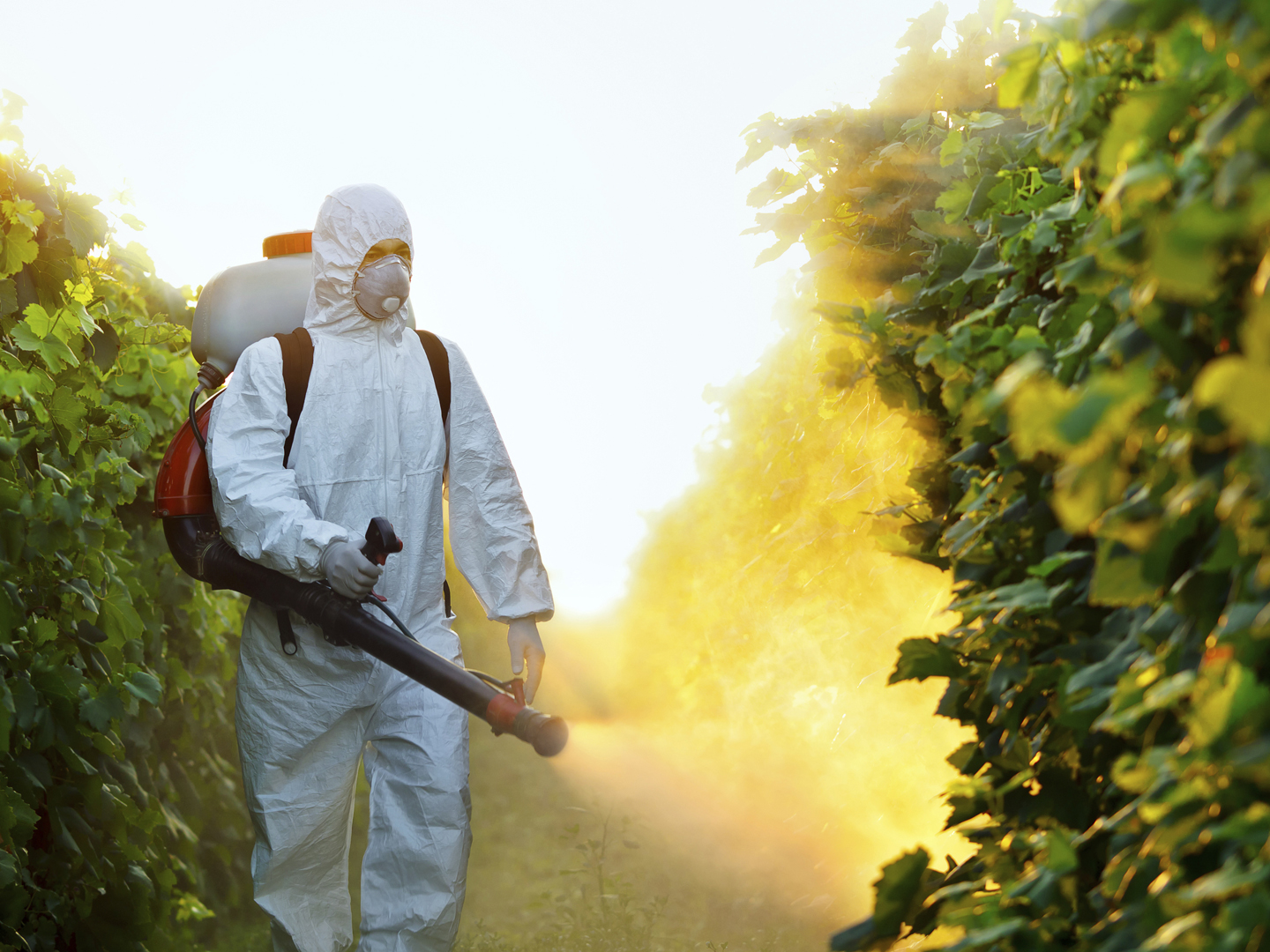Do Pesticides Cause Depression?
I understand that pesticides have been linked to depression among farmers, which makes me worry that the rest of us might be affected, too. Can you tell me about the connection between pesticides and depression?
Andrew Weil, M.D. | February 27, 2015

A study published in September 2014, reported an association between the long-term use of pesticides and depression among farmers. A research team from the National Institutes of Health reviewed almost 20 years worth of data collected from 21,000 farmers and concluded that two types of pesticides, organochlorines and fumigants, increase the risk of depression among farmers by up to 90 percent and 80 percent, respectively. In addition, seven specific pesticides that fell into both of those broad categories have been associated with an increased risk of depression. Other evidence shows that a heavy dose of pesticides over a short time doubles the risk of depression.
The study also found that only eight percent of farmers surveyed sought treatment for depression – less than the 10 percent of the general U.S. population that is treated for depression.
We don’t know exactly how pesticides lead to depression, although researchers have noted that the chemicals work by disrupting insect nerve function and might do the same in the human brain. In studies with rats, pesticides have been shown to alter brain cells, neurotransmitters, and production of the protective compound kynurenic acid, believed to influence neurophysiological and neuropathological processes.
Earlier studies using the same NIH data found links between pesticides and suicides among farmers, as well as depression among the spouses of farmers. In addition, Wendy Ringgenberg, a University of Iowa researcher, found that farmers and farm workers were 3.8 times more likely to commit suicide between 1992 and 2010 than those in other professions, although her investigation didn’t identify the causes of the suicides. In addition to the possible effects of pesticides, farming is a high-stress occupation for many reasons including long workdays, fluctuating markets and weather changes, as well as crop and animal diseases.
The 2014 NIH study isn’t the only one to link depression to farmers’ synthetic chemical exposure. French researchers reported in 2013 that farmers who used herbicides were nearly twice as likely to have been treated for depression than those who didn’t use the chemicals. That study also showed that the risk was even higher when the farmers (or other herbicide applicators) had been using the chemicals for more than 19 years. A study in Brazil found that farm workers who used pesticides were more likely to commit suicide than those in other occupations, and a World Health Organization survey of 9,800 people in rural Zhejiang province in China reported that those who stored pesticides in their homes were at double the risk of suicidal thoughts.
We don’t know to what extent pesticides may be influencing rates of depression in the non-farm population. That data would be hard to come by considering all the other factors that would have to be ruled out. However, the findings that pesticides are linked to depression and suicide among farmers and farm workers is another reason to opt for organic foods whenever possible.
Andrew Weil, M.D.
Sources:
Freya Kamel et al, “Pesticide Exposure and Depression among Male Private Pesticide Applicators in the Agricultural Health Study.” Environmental Health Perspectives, DOI:10.1289/ehp.1307450
Marc G. Weisskopf et al, “Pesticide Exposure and Depression Among Agricultural Workers in France.” American Journal of Epidemiology, doi: 10.1093/aje/kwt089









